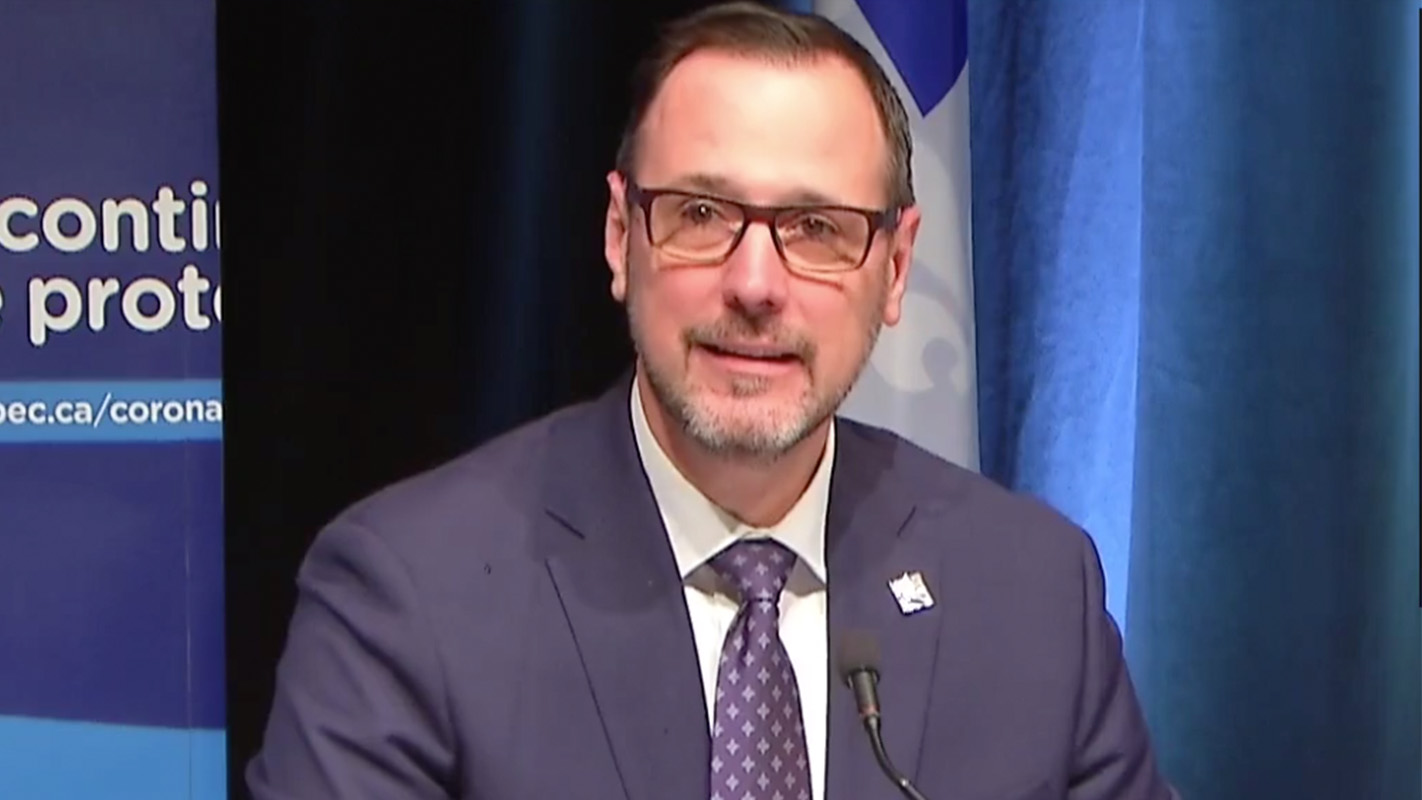By Gordon Lambie
Local Journalism Initiative
Quebec’s Education Minister Jean-François Roberge told media on Wednesday afternoon that the province intends to move ahead with the plan to have students return to class on Jan 17, despite the increasing COVID-19 case and hospitalization numbers.
“Our schools are and will be safe,” the minister said as he outlined the conditions under which schools will reopen.
As a first measure, Roberge said that schools will distribute another 3.6 million rapid test kits as of the return to class and repeat the procedure again in February. This will allow each child up to five rapid tests per month to check symptoms before heading to school and potentially infecting others. Although he said that schools will also continue to conduct rapid tests at school on children who develop symptoms over the course of the day, he discouraged parents from sending symptomatic children to school to be tested.
“Do not send symptomatic students to school,” he said, noting that schools will continue to close classes as soon as two or more students in a group test positive.
Related to testing, the education minister said that teachers and school staff will be added to the recently announced priority list for the more reliable PCR tests as of January 15.
Students and teaching staff will be given access to a greater number of procedural masks over the course of the day, but Roberge said that there will be no distribution of N95 masks to school staff despite requests, based on the recommendation of public health.
Asked about the decision not to provide the masks, Provincial Public Health Director Dr. Horacio Arruda argued that N95s are meant to be used in particular medical contexts, and that it would be unpleasant to wear one for an entire day.
Roberge also said that the government expects more than 50,000 carbon dioxide detectors to be delivered to schools across the province within the next 48 hours, and that the air-quality monitoring equipment should be installed and functional by the time students return. Recognizing that being able to read the air quality is not the same as being able to improve it, he also said that “hundreds” of air exchangers have been made available to the highest priority schools (as identified by past air-quality studies) and that more can be made available to school and school boards as needed.
“We want to be sure we are protecting everyone,” he said.
In the meantime, Roberge pointed out that the school year has not been put on hold and said that parents and adult students should be on the lookout for communications from school about expectations and schedules over the coming days. He mentioned, for example, that fifth and sixth grade students will still be expected to complete 13 hours on online instruction per week with an additional seven hours of individual work.
Where all students have been moved to online learning for the time being, the education minister noted that there are some exceptions when it comes to programs of study that involve workshop, laboratory, or exam work that cannot take place at a distance. He also mentioned that as a result of the delayed start, teachers have been given a two-week grace period on completing the first report card.
Asked about how realistic it is to imagine students going back on Jan 17, Arruda noted that 12 days is “a long time under Covid.” That in mind, he said that the date is the main target, but is not a guarantee.
The Province of Quebec reported 14,486 new cases of COVID-19 on Wednesday based on the results of 55,339 tests carried out on Monday. This brings the total number of people infected since the start of the pandemic to 680,308 with 115,626 confirmed active cases.
The total number of hospitalizations jumped up by another 158 compared to Tuesday, as 321 people were admitted to hospital while only 163 were discharged. Of that total 191 were in intensive care, an overall increase of six (29 in, 23 out.)
The province also reported 39 new deaths, for a total of 11,820 since March of 2020.
The INSPQ, Quebec’s institute of public health, reported 4,582 known active cases in the Eastern Townships on Wednesday, an increase of 373 over Tuesday’s numbers. The number of hospitalizations for COVID-19 in the Eastern Townships was also the highest it has ever been as of Wednesday’s report, with 100 people in local hospitals, 15 of whom were in intensive care. The region also recorded 10 new deaths linked to the virus, bringing that total to 420.
The next detailed update from the CIUSSS de l’Estrie CHUS is planned for next Monday, January 10, at which point the updates will return to their previous Monday, Wednesday, Friday schedule.





